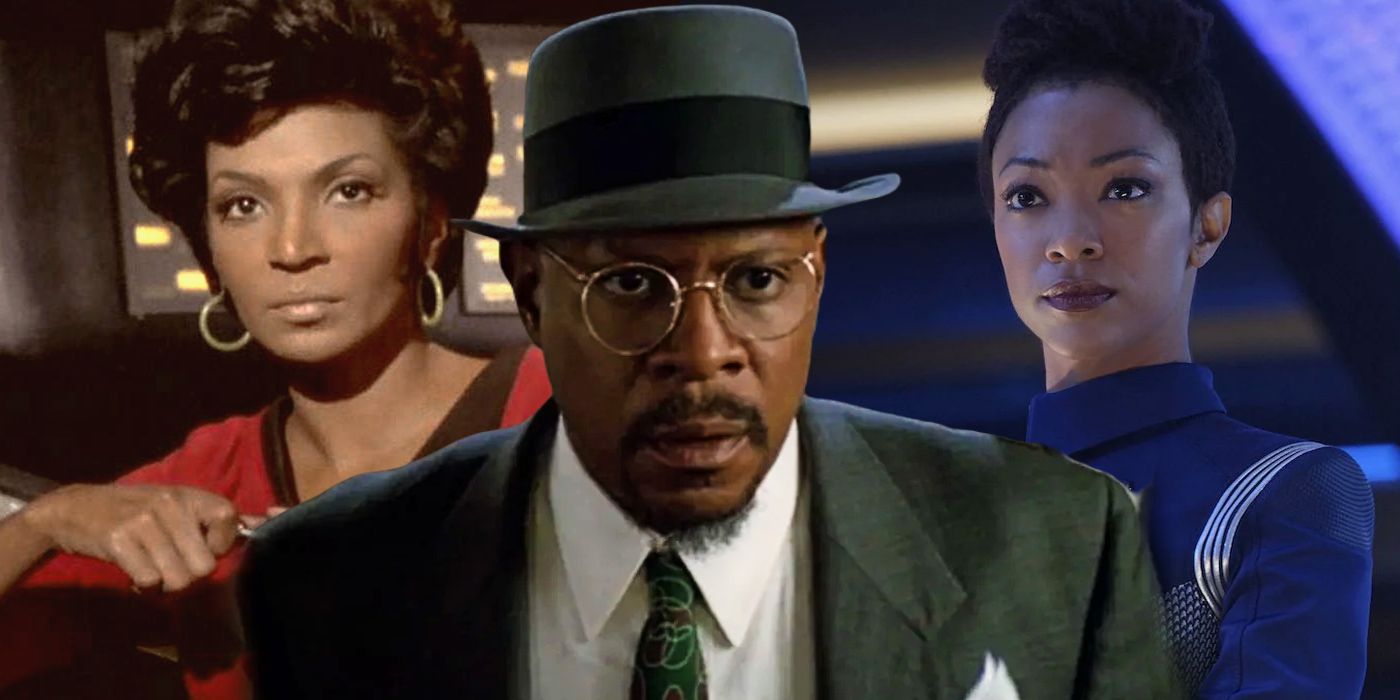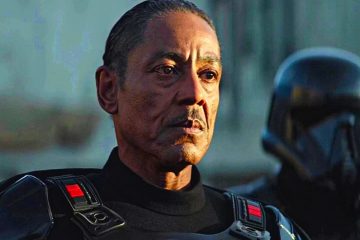For a 60-year-old storytelling universe, it’s nearly impossible to point to a single story that is its most influential and important. However, Star Trek: Deep Space Nine’s Season 6 episode “Far Beyond the Stars” is arguably the entire saga’s most important hour. Benny Russell, the character played by actor and episode director Avery Brooks, is a man capable of dreaming up a future his peers cannot comprehend. In a way, Deep Space Nine used “Far Beyond the Stars” to tell a story about Star Trek itself. Though, there are some major caveats.The episode was conceived from a discarded story pitch from freelance writer Marc Scott Zicree using a common idea from this universe. Jake Sisko, a budding writer, would time-travel to the heyday of the 1950s pulp magazine era to meet with and talk to science fiction writers. The twist was going to be that these writers were, in fact, aliens looking to understand something about humanity. Showrunner Ira Steven Behr didn’t want to do it, saying “there was no bottom to the story,” in the Star Trek: Deep Space Nine Companion by Terry J. Erdmann with Paula M. Block. However, while driving, he wanted to revisit the concept by making Captain Sisko the central protagonist and use it to tell a story about racism. Since there were no writers of color on the DS9 staff, Behr offered the episode to Brooks as a director. Despite being in every scene, he was as meticulous behind the camera as he was in front of it. So, while this episode is a story about racism, that’s not how the director approached it.Brooks goes on to say, “color has little to do with it,” arguing that what made Benny Russell’s story — effectively the show Deep Space Nine — so inconceivable to his colleagues is the infinite diversity of the setting. Along with a Black space station captain, there were aliens of all kinds living in (relative) harmony with one another. Benny’s stories weren’t about race but, much like Star Trek itself, a universe where things like appearance, gender identity, and other social constructs don’t matter.
For a 60-year-old storytelling universe, it’s nearly impossible to point to a single story that is its most influential and important. However, Star Trek: Deep Space Nine‘s Season 6 episode “Far Beyond the Stars” is arguably the entire saga’s most important hour. Benny Russell, the character played by actor and episode director Avery Brooks, is a man capable of dreaming up a future his peers cannot comprehend. In a way, Deep Space Nine used “Far Beyond the Stars” to tell a story about Star Trek itself. Though, there are some major caveats.
The episode was conceived from a discarded story pitch from freelance writer Marc Scott Zicree using a common idea from this universe. Jake Sisko, a budding writer, would time-travel to the heyday of the 1950s pulp magazine era to meet with and talk to science fiction writers. The twist was going to be that these writers were, in fact, aliens looking to understand something about humanity. Showrunner Ira Steven Behr didn’t want to do it, saying “there was no bottom to the story,” in the Star Trek: Deep Space Nine Companion by Terry J. Erdmann with Paula M. Block. However, while driving, he wanted to revisit the concept by making Captain Sisko the central protagonist and use it to tell a story about racism. Since there were no writers of color on the DS9 staff, Behr offered the episode to Brooks as a director. Despite being in every scene, he was as meticulous behind the camera as he was in front of it. So, while this episode is a story about racism, that’s not how the director approached it.
Brooks goes on to say, “color has little to do with it,” arguing that what made Benny Russell’s story — effectively the show Deep Space Nine — so inconceivable to his colleagues is the infinite diversity of the setting. Along with a Black space station captain, there were aliens of all kinds living in (relative) harmony with one another. Benny’s stories weren’t about race but, much like Star Trek itself, a universe where things like appearance, gender identity, and other social constructs don’t matter.
#Deep #Space #Nines #Stars #Star #Trek
Note:- (Not all news on the site expresses the point of view of the site, but we transmit this news automatically and translate it through programmatic technology on the site and not from a human editor. The content is auto-generated from a syndicated feed.))



